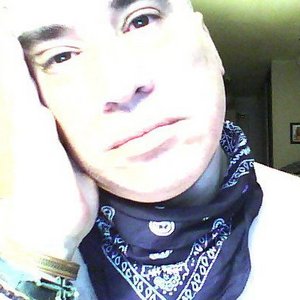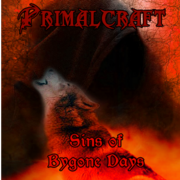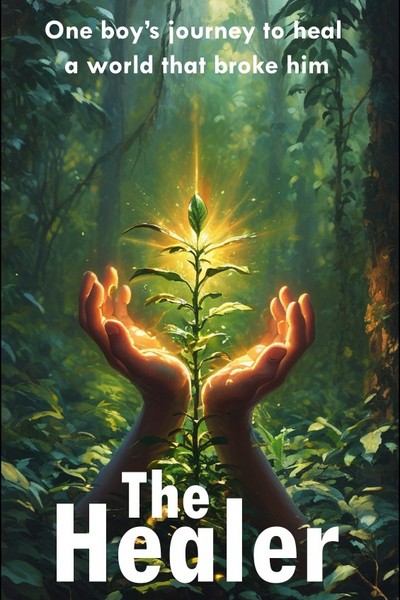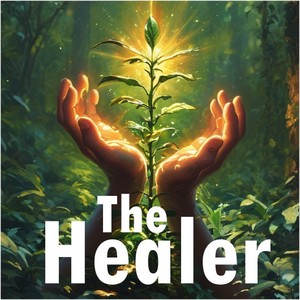He arrived in the world a wisp of a thing, a stark contrast to the robust, sun-kissed children of Veridia. He was born under a bruised, late-autumn sky, and from his first fragile breath, it was clear he was not like the others. Where healthy infants cried with furious demands, Elos mewled, his small chest barely rising, perpetually struggling for air. Fevers were his constant companions, clinging to him like persistent shadows, and his body seemed a landscape of perpetual aches and coughs. The Sun-Blessed priests, consulted in hushed tones, murmured about a weak spirit, a soul not fully anchored. Some villagers, with their hard-won faith, whispered of a lack of devotion, a karmic burden on the infant. But Elos's family, a quiet bastion of love and unconventional wisdom, never wavered in their fierce protection.
His earliest memories were a blur of warmth and the earthy scent of dried herbs, always emanating from his grandmother, Blossom. Blossom was the village’s unofficial balm, a healer of quiet renown whose touch brought solace. While the temple offered grand rituals, Blossom offered quiet remedies: steaming concoctions brewed from foraged roots, poultices of crushed river clay and comfrey, and cool compresses laid upon a fevered brow. She moved with a gentle efficiency, her hands gnarled but impossibly soft, her eyes crinkling with a wisdom that transcended the rigid doctrines of the Sun-Blessed One.
"The earth provides, child," she would murmur, pressing a cup of bitter tea to his lips, "and the earth remembers. Every leaf, every flower, holds a secret, a purpose. Our task is to listen."
It was Blossom who taught Elos the names of the common herbs, and showed him how to differentiate between the delicate white blossom of nightshade and the similar, but healing, elderflower. From her gentle guidance, a constant presence during his long, often debilitating childhood illnesses, Elos absorbed not just the rudiments of healing, but a fundamental reverence for the interconnectedness of all living things. He learned to discern the subtle language of the body, to observe its silent struggles, and to see the profound power within the smallest of nature's offerings.
Then there was Elanaki, his mother, a woman forged from pure, unyielding protective love. Her eyes, the deep green of the forest canopy, would darken with a formidable intensity whenever a priest’s stern gaze lingered too long on her sickly son, or when a villager dared to voice their judgments about his fragility. Elanaki was the one who smoothed his tangled hair, sang lullabies that spoke of ancient trees and flowing rivers, and shielded his delicate frame from the harsher realities of village life. She didn't question the Sun-Blessed One aloud, but her devotion was to her family, and to Elos’s well-being above all else. She held him close during his deepest coughing fits, her silent strength a tangible comfort.
She taught him resilience, not through words, but through her unwavering presence, her refusal to let his weakness define him. Her protective instincts, sharp as a hawk’s talons, created a safe haven where Elos could be fragile without shame, and where his burgeoning curiosity was nurtured, not stifled.
His father, Ioann, was the bedrock of their small family, a provider whose hands were calloused from tilling the rich soil of Vasal. A man of few words, Ioann’s lessons resonated deeply. He didn't speak of gods or prophets, but of the tangible world.
"Look closer, Elos," he would say, squatting beside his son in the freshly plowed field, pointing to a beetle burrowing into the earth. "What do you see? What do you think it does? Don't just take what others tell you. Dig, examine, ask. The truth often hides just beneath the surface."
This wasn’t merely practical advice for farming; it was a philosophical tenet. Ioann instilled in Elos a relentless intellectual honesty, a mandate to never take things at face value, to investigate every claim, every observation, and to always search for the truth. This was a dangerous lesson in a village that valued unquestioning faith above all else—but it was one Elos absorbed into the marrow of his bones.
Then there was Jawny, his grandfather, whose world smelled of aged paper, leather, and quiet contemplation. Jawny was the village's sole bookseller, his small shop a haven of knowledge nestled between the noisy market and the baker’s. Though most of the books were sanctioned temple texts or agricultural guides, Jawny possessed a hidden collection of older scrolls, dusty tomes that whispered of forgotten histories and different ways of seeing the world.
When Elos was too frail to play outside, Jawny’s shop became his sanctuary. It was there, amidst the towering shelves, that Jawny would select a book for his grandson—not always a popular or approved one, but always one that would spark his mind.
"Reading," Jawny would say, his voice a soft rustle like turning pages, "is a conversation with minds long past. Writing is how you leave your mark on the world. Don’t let your thoughts vanish into the air."
He pressed a quill into Elos’s small, shaking hand. "Observe, my boy. Write what you see. Write what you wonder."
It was Jawny who instilled in Elos a love of reading and writing, transforming curiosity into a methodical pursuit. He taught Elos to not just consume information, but to dissect it, to analyze and compare narratives, and to question the author’s intent. He nurtured Elos’s growing love of cataloging, encouraging him to draw and label every plant he encountered, to meticulously record its properties, its behavior, its environment. He found rare, ancient texts for Elos—hushed histories of forgotten gods of compassion, texts describing plants unknown to temple lore.
As Elos transitioned from a sickly child to a young man, a transformation took hold—not just of the body, but of understanding. Driven by his father’s challenge to investigate and his grandmother’s knowledge of bodily rhythms, he turned his attention inward. If he could catalogue and decode the world around him, why not his own body?
He would lie still, tuning into the throb of a fever, the catch in his breath, the ache behind his ribs. He didn’t endure the pain; he interrogated it. Could mental focus replicate the effect of willow bark on inflammation? Could intention guide healing energy to a wound?
Slowly, a strange ability emerged. He began coaxing his lungs to breathe deeper, his digestion to steady, his immune system to respond. No miracle, no divine hand—just an emergent synergy between observation, will, and belief in the body’s own design. The fevers became less frequent. The coughs, manageable. The pain, something he could influence.
This was not a gift granted from above, but the unlocking of a dormant power—one the temple would deem heretical. The temple demanded faith in intervention from without. But Elos had found healing within.
He guarded this truth closely. It was rebellion of the quietest kind, born not of defiance but devotion—to truth, to connection, to the memory of every hand that ever lifted him when he fell.
Healer, skeptic, recorder, rebel: Elos was shaped by those who had loved him fiercely. Their lessons formed the roots of a soul that would not yield to dogma. They did not know it then—perhaps they had always known—but they were preparing him for exile, for resistance, and for the dangerous beauty of seeking a different kind of light.











Comments (0)
See all